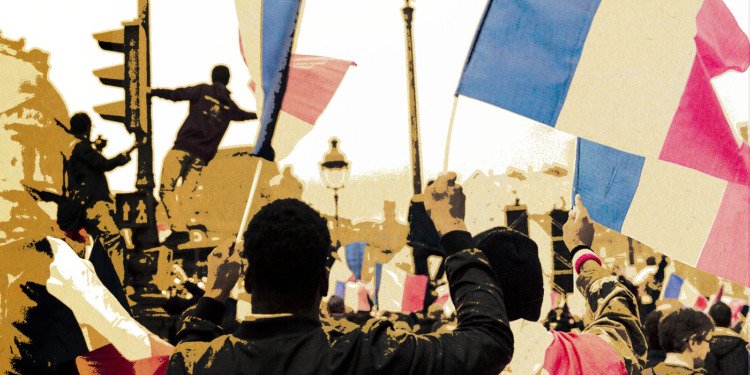
France’s New Popular Front won the most seats in the parliamentary election but, after avoiding a far-right sweep, does a deadlock lie ahead?
by Lachlan Guselli and Reece Hooker, 360info
July 11, 2024
Another vote, another seismic shift in French politics.
For the past week, the world had been bracing for a widely anticipated far-right victory. But over the weekend, the country’s second-round election results delivered a surprising twist.
Instead, an unlikely coalition of left-wing and environmental parties, known as the New Popular Front, cobbled together every vote it could muster to prevent the far-right New Popular Front from gaining power.
The New Popular front, a hark back into France’s political history, a tactic for the nation to hold firm against extreme elements in politics, has made a dramatic return, winning the most seats on 182 ahead of Macron’s Ensemble alliance on 163 and the expected victors, the National Rally on 143.
National Rally candidate Jordan Bardella called the New Popular Front an “undemocratic alliance” after the vote. Many questions remain about how the group can potentially pick a candidate.
French President Emmanuel Macron has asked Gabriel Attal to remain as prime minister as the tough work of negotiations begins for the new coalition. Some see the potential of a hung parliament as more palatable than Jean Luc Melenchon becoming prime minister.
Speaking with 360info’s Leave It To The Experts, Associate Professor Ben Wellings, an expert in European Nationalism at Monash University, says that the economic policies of Melenchon are just one of many factors limiting his appeal.
“Melenchon comes from the hard left and some of the complaints that the centrists have and that some of the electors have expressed in vox pops and other forums as well, is that there is a sense that Melenchon has used anti-semitic, terms, or at least members of his party have,” Wellings said.
The legacy of this process on French politics will sit mostly on the shoulders of Emmanuel Macron. Macron called the snap elections in a gamble to consolidate his power base within France. However, despite avoiding the far right, it now gives the extremes of French politics future legitimacy and further credence in policy.
“I think his [Macron’s] centrist party renaissance has lost the mandate to be the first choice when it comes to, a prime minister, and, and forming a government. It’s a bad miscalculation,” Wellings said.
“It’s a political miscalculation to give your opponents an election just when they’re riding high, which is what happened earlier last month after the elections for the European Parliament.
“We might call it a crisis in French politics but, on the other hand, the National Rally isn’t in government, it hasn’t even got a plurality of all the seats in the French national assembly. So, I imagine someone with the self-regard of Emmanuel Macron will actually, really just want to carry on and see out his time, no matter how difficult that is.”
** **
This article was originally published by 360info™.
Subscribe to our newsletter.
This article was originally published on IMPAKTER. Read the original article.

